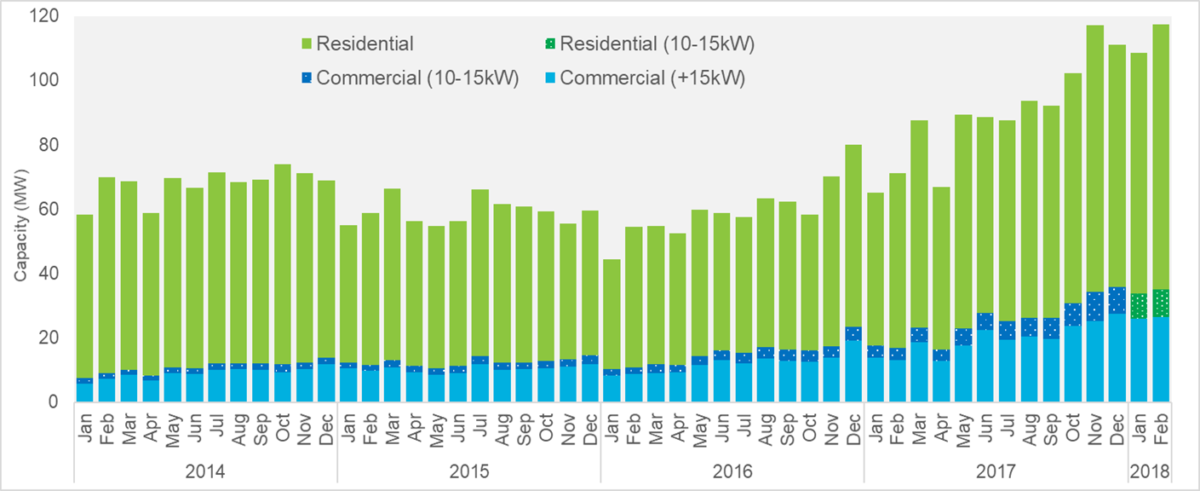Rooftop solar installation rates show no signs of letting up in Australia. The capacity of rooftop system installed, measured by Small-scale Technology Certificate (STC) creation and tracked by Green Energy Markets (GEM), shows that February went close to topping November 2017 – the previous record-setting month for new rooftop solar capacity.
Additionally, GEM has observed that an increasing number of households are “choosing to max out their roof with as much solar as they can fit.” As a result, GEM now classifies systems between 10 – 15 kW as being residential systems, rather than commercial (C&I).
“February had just 20 working days while November [2017] had 22, so these are extraordinary numbers,” writes GEM’s Tristan Edis in his latest STC report.
While GEM’s official tally for February puts new small-scale rooftop capacity at 117.4 MW, Edis notes that this number is likely to decline somewhat as “a small percentage of systems” are ruled invalid, and therefore removed from the STC total.
The official installation data supports reports from installation companies, some of which predicted that the 2017 rooftop record is set to be “smashed” in 2018. Concerns about rising electricity tariffs, the high profile of energy policy in public debate, and the arrival of battery storage is combining to push many households towards taking the plunge and installing a rooftop PV array.
STC figures relate to rooftop PV systems up to 100 kW.
This content is protected by copyright and may not be reused. If you want to cooperate with us and would like to reuse some of our content, please contact: editors@pv-magazine.com.




By submitting this form you agree to pv magazine using your data for the purposes of publishing your comment.
Your personal data will only be disclosed or otherwise transmitted to third parties for the purposes of spam filtering or if this is necessary for technical maintenance of the website. Any other transfer to third parties will not take place unless this is justified on the basis of applicable data protection regulations or if pv magazine is legally obliged to do so.
You may revoke this consent at any time with effect for the future, in which case your personal data will be deleted immediately. Otherwise, your data will be deleted if pv magazine has processed your request or the purpose of data storage is fulfilled.
Further information on data privacy can be found in our Data Protection Policy.